#elf lore
Explore tagged Tumblr posts
Text
here’s my take on elven aging/maturity in d&d:
you know how, when a person gets old enough, they kinda just stop giving a shit, and that’s how you get a bunch of old people who say whatever the fuck they want and really couldn’t care less about what other people think?
imagine if a person could live past that point.
imagine if, instead of a sort of freedom at the end of life, that was the shift in mindset that signified a person becoming a mature adult. imagine if the first century of life was viewed the same way we view the teenage and college years — emotionally tumultuous, going through phases and dealing with insecurities and trying to find yourself, until finally you reach the other side as a mature adult with a more confident sense of who you are and what you want. imagine if anything less than that who-gives-a-fuck attitude we see in older people was viewed as childish and immature.
given what we know about how a person’s approach to life can change as they get closer to living through a full century, you can imagine how a society’s idea of mental maturity might change if people lived long enough to reach that mindset shift while they have most of their lives ahead of them. you can’t mature without experience, and elves get six and a half more lifetimes than we do to experience things; of course they have a higher threshold for what constitutes maturity.
so a 40 year old elf might not be a child in the literal sense — they’re just as physically matured as any other 40 year old, regardless of lifespan — but the way they live their lives would sure as hell look childish to an older elf who hit their no-more-fucks-to-give age three centuries ago.
#ik it also has to do with memories and trancing and such but. i think it’s this too personally#dnd elves#astarion#<- tagging his ass bc the discourse about his age is what made me start thinking about this#dnd lore#bg3 lore#elf lore
43 notes
·
View notes
Text





🧝♀️ Loreleia's GF (New OC of TDP)🌊
A/N:
I am back again everyone! 🙏 Because I am so busy on Senior High School 😔, which I haven't posted yet TwT. This is my more post consider I watch The Dragon Prince S6, When it is S7 will be on December 19.
Let's go to my explanation of my another new OC 😄.
• [Lore Story Explained]:
- This is Valindra, She is the tidebound elf of Xadia & the daughter of Queen Lythienne, knowing as she's a royal princess of the Tide Pools & Oceans/Sea. She has to break her mother's rules since she told her daughter not to go on the land, because of elves & humans have legs then they are too dangerous for Valindra. As long as, Her mother Lythienne will protect her kingdom, people & her daughter. 😄✨
- Valindra will stay underwater & her palace, her form was a siren/mermaid that turns into her legs to walk on the land, She loves to swim & some problem she's stuck on the net, she sees a Moonshadow Elf was Loreleia. Loreleia will free Valindra & these two became childhood friends, Ethari called his daughter get lost & Loreleia went back to SilverGrove, after Loreleia introduce to Valindra & she's introduce her father Ethari, the guards called Valindra, Two Moonshadow elves notice about Valindra was a real princess. Many next year, they met again & they became couple as they're girlfriends each other of their love ❤️🥰
Hope you like them ❣️🤗
• Bio introduction:
Name: Valindra
Species: Tidebound Elf
Occupation: Princess (She's born as monarch)
Age:
18(S8)
17 (S6 & S7)
16 (S5)
15 (S4)
12/13/14 (Through the moon, not here)
10 or 11(S3, not here)
8-9 (S1-S2, not here)
Birthday: October 24
Sexuality: Pansexual & Demigirl
Type: Ocean Primal
Home:
- Oceans/Sea (Kingdom)
- Tide Pools
• Relationship:
Queen Lythienne (Mother)
Mage Akiyu (Royal Advisor/Master)
Loreleia (Childhood friend & Girlfriend, moonshadow elf)
Rayla (Sister-in-law & Friend)
Runaan & Ethari (Parents-in-Law & Friends)
Humans (Neutral/Friends)
Dark mages (Enemies)
Next Gen OCs:
• Loreleia (Daughter of Runaan & Ethari)
• Valindra (Daughter of Queen Lythienne)
#the dragon prince#art#artist on instagram#my artwork#ibispaintapp#ibispaintx#original character#oc#ocs#original characters#my ocs#my oc#tidebound elf#moonshadow elf#the dragon prince ocs#the dragon prince oc#tdp#tdp ocs#tdp oc#tdp princess oc#tdp princess ocs#oc x oc#artist on tumblr#instagram#elf lore#the dragon prince mystery of aaravos#tdp mystery of aaravos#supa drawn cartoon#give us the saga#greenlightarc3
16 notes
·
View notes
Text
Things are complicated when you're talking about a fantasy race with a lifespan of nearly 1000 years who mature at the same rate of humans but aren't considered adult by their own kind until they are 100 years old.
I've seen people argue that Astarion was very young when he was turned and I've seen people argue that he was "in the prime of his life" when he was killed and it's BOTH.
In human terms, 39 isn't "very young" and Astarion had the maturity of a 39 year old human, he wouldn't have been able to hold a position of relative authority if he'd been barely been out of his teenage years. But he was also a 39 year old elf in a city with a predominantly human population, which means all these humans would've seen him - and really any elf his age - as a fully grown adult.
Elven maturity has a lot more to do with life experience (and some metaphysical whats-it regarding trance and past live memories), and if you can live to be 750 years, than 39 years of life experience is barely a drop in the bucket.
At 39 years, most elves will not have seen their much shorter lived friends die of old age. At 39 years, most elves will not have lived through more than one reign of a human monarch. At 39 years, most elves will not have seen some world shaping event happen that most elves over that age remember. And memory is important to elves.
BUT, I hear you say, IF ASTARION IS REALLY SO YOUNG FOR AN ELF WHY DOES HE LOOK [insert whatever age you think he looks like, idk, I'm bad at judging age]. Any number of reasons, really. Take your pick. But it also isn't the point I'm making.
Elves below 100 years do not have relatively less life experience than humans. It's just that 750 years, any elf will have ca. 10x more life experience than any human of 80 years. It isn't just that elves see other elves below 100 years as "basically" (not literally!) children, it's that they see EVERYONE that way.
15 notes
·
View notes
Text
Different potentially fucked up elf ear cultures because idk why my brain was on it:
- ear binding, to try and limit the length the ears grow to
- ear clipping, to try and affect the firmness of the ears/how straight out/back they sit
- ear stretching/end of ear weights to try and lengthen the ears
7 notes
·
View notes
Text

Dark Elven Queen
12 notes
·
View notes
Text

1 note
·
View note
Text
Treias Lineages: Elves



The Elves of Treias are as vastly varied as humans, with the only constants being pointed ears and a stronger connection to magic.
Elves of all kind are second only to certain fae in terms of magical ability, and are not themselves considered fae but possibly fae adjacent/descendant.
Their natural ties to magic energy means most are born with innate ability, usually aligned with one or two of the primary elements (fire, water, earth, air), and possibly secondary elements that bridge between them (lightning, plant, ice, etc).
Occasionally, an elf's ability may align with supernatural elements (light, healing, darkness, shadow, mind, physicality) that are usually associated with otherworldly beings. It's theorized these abilities come from fae ancestry and the types of relations fae had with others.
It's rare for any elf to be able to manipulate more than 2 elements naturally (not counting dark elves, that's a different thread), though they may later learn as many as their individual capacity and drive allows. Even more rare, but possible, is an elf born magically inert.
As a whole, elves make up largest population by race in the world. They live 300-400 years on average, their lifespans longer than humans but shorter than dwarves.
There are many different beliefs among elves on anything from their origins to their appearances to their connections to nature, but some of the most common are these:
1. An elf with longer ears and/or less body hair is closer, genetically, to their probable fae ancestors.
2. Elves have been around much longer than most other sapient races, excluding fae races.
3. While much of who and what they are has a very probable connection to fae ancestry, they are not themselves actually fae.
There's legend of the first elves springing forth from something-probably-fae as opposed to a natural evolution line. Actual evidence has ancient elven remains that date back much farther than most other sapient races.
While not universal, common perception of elves from a non-elven perspective is that they can be a bit self righteous as a people. They make up a majority of the world's political leaders, and a good chunk of important religious leaders. A lot of their moral doctrine comes from a belief in The Four (actual name for them varies around the world) and the balance of elements that each of the four represents. Depending on location, there's a lot of different meanings but a mostly universal respect for The Four.
Like with dwarves and humans, Elvish Trade language makes up some part of Universal Trade Common. Though their contribution isn't the biggest factor (compared to dwarves), they tend to hold pride in the fact that most of the world relies on some aspect of elvish culture in some way.
Additional information:
It's a common practice for transgender elves to choose a name that is a palindrome. While the parameters for transness are a bit different due to elven understanding of gender, there are still those that do change from what is typically assigned at birth.
Even so, they are openly accepted in every known elven culture, and the palindrome naming convention was something that just became popular among trans elves.
Examples: Irori, Massam, Kenek, Lakokal, Jasaj.
Extra notes:
Elves were my first fantasy obsession before orcs, and I've spent a LOT of time just thinking about the different elvish cultures around the world and what makes theirs uniquely elvish where geographical locations and customs parallel those of Earth among all the various lineages that coexist in Treias.
3 notes
·
View notes
Text
#jrr tolkien#tolkien#the silmarillion#lore#elf lore#tolkien lore#should i do it#or is it a waste of time#polls#tumblr polls
4 notes
·
View notes
Text
patri's jacked braids, the post
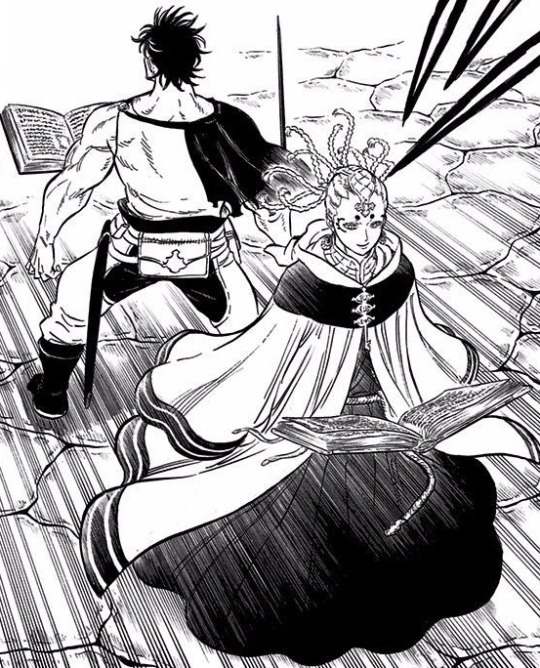
so patri's cult fit. you know it, you have mixed feelings about it, it sure is a look but the most egregious bit is the hair.
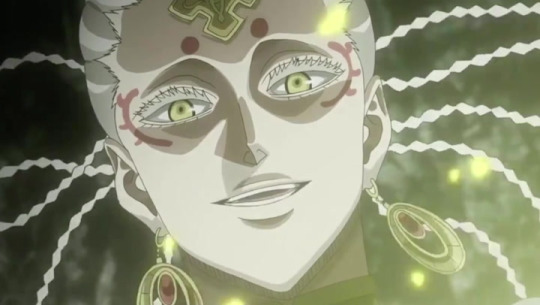
girl what is this.

your scalp, girl. please.

PATRI, YOUR SCALP!!!!!!!!
anyways something i noticed when my darling was discussing the apostles of sephirah and the sephirot and the whole. the everything going on there
patri has ten braids exclusively. it took a lot of counting, and panel checking and making sure i got my numbers right but yeah. ten braids. you know what else has ten components?
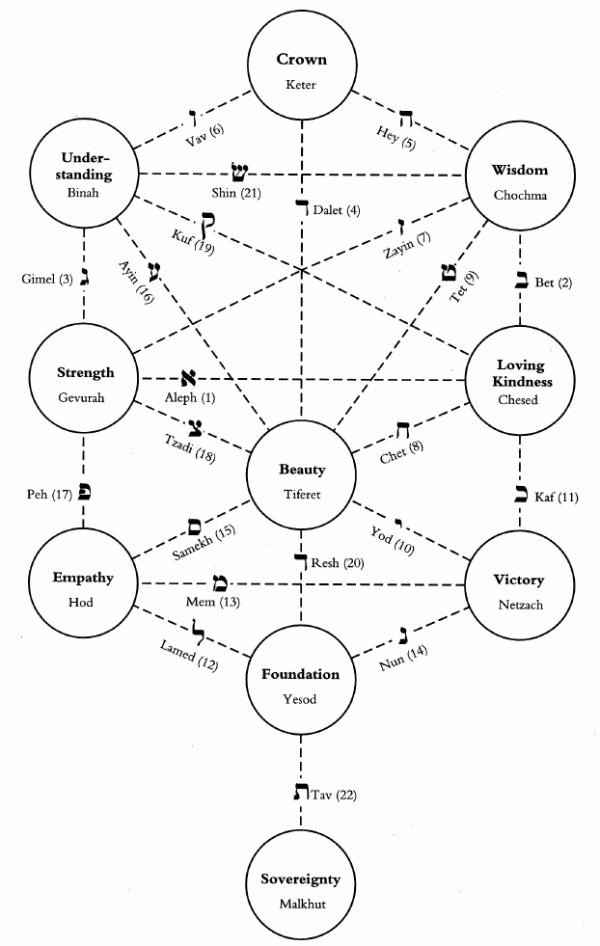

patri's stupid ass octopus head ass hairstyle is fucking thematic. he's got all ten braids for all ten apostles which makes his busted hair actually kind of sad.
he misses them,,,,
18 notes
·
View notes
Text



In my New fantasy world name pending, elves are related too intellectual advanced cats.
True elves are a bit more animalistic and primal in nature. They don't have as many adaptations as the subtypes.
In the modern day true elves are rare. They tend to be in reclusive settlements after some ancient catastrophe ruined the population of pure elves.
All modern day elf variants are actually half elves, and true elves feel that they are objectively lesser because of it.
A proud species, a majority of them feel like they should be treated as royals.
2 notes
·
View notes
Text
Recommending Memories in the Dust by about2dance
Very cool head canons about Ancient Elvhenan in this short story by @about2dance Love the lore around hair, memory beads, and vallaslin-centered compulsion. Also, An'da is a great OC! Brave and sweet. A wittle smol sweet baby I want to hug. And the angst is sooo thick! Read on AO3 -> I also read this as part of my commenting sprint for @justleaveacommentfest
#dragon age fanfiction#dragon age fic#commentweek#justleaveacomment#my friend's fic#my friend's oc#ancient elvhenan#elf lore#cool dragon age head canons#solavellan#solas x oc#papae solas
3 notes
·
View notes
Text
I'm saving this to use as a reference the next time I write Tolkien-style elves.
How to turn archery into a full-body workout! (Aka when you have more hobbies than time)
Psst... I upload bonus content to Patreon
4K notes
·
View notes
Text
Noressians, Frost Elves of the Prime
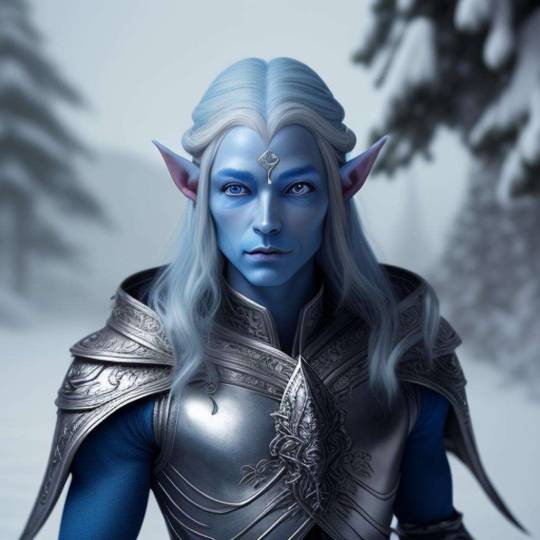
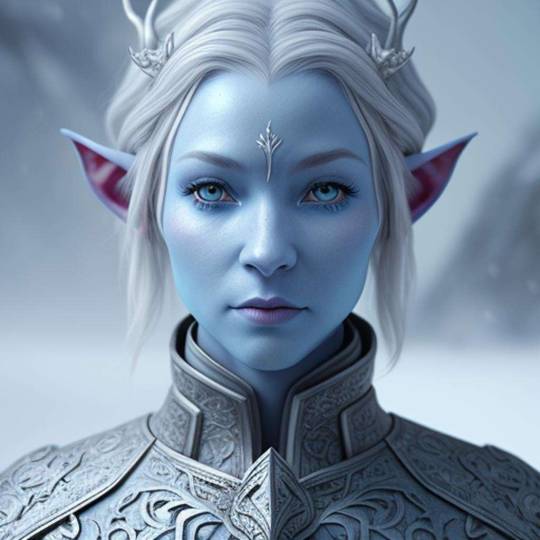
Centered in the far north-eastern corner of the world map, the theocratic kingdom of Nores is the native home to the Noressian elves. These frost elves, as many other cultures refer to them, are heavily adapted to the frigid environment of their homeland. Through deep study into Storm magics, they've altered themselves to complete comfort in the perpetual winter of Nores, at the unfortunate cost of severe discomfort in warmer areas of the world.
The alterations they've subjected themselves to, beyond allowing them an easier life in the cold, has tinted their skin a variety of light blues (or darker blues if their complexion would have been darker) and stripped their hair to shades of silver, white, and occasionally a very light lavender. This magical change to their anatomies is not a limit on what magics they're capable of studying, however it isn't uncommon to encounter a Noressian Storm magician versus any other elemental type.
The frost elves are notoriously androgynous, with most tells being from cultural traditions rather than anatomical tells. In Noressian tradition, the women are the warriors and as such keep their hair shorter as to avoid sudden blinds pots. Conversely, the men are the politicians or religious leaders who can kind of flaunt their easier life through longer, well maintained lockes. This being said, it is just tradition - there is nothing stopping a reversal of roles or societal outlier in any sense.
The theocracy of Nores is based around an at times zealous devotion to the Divine of Storms, Jerikas - an embodiment of winter and ice. Unfortunately with this almost blind devotion comes a risk to be led astray by leaders who claim to receive orders from the Divine while they chase their own goals. The most recent and drastic example of this was their march southward in search of the Essence of Light; thankfully thwarted by Linacaan and Leraboz forces combined.
The images above were generated using Picsart text-to-image AI and are referential placeholders for the time being. I do not claim ownership of them.
#fantasy setting#rpg#ttrpg#ttrpg community#world building#creative writing#fantasy#elf#elves#elf lore#frost elf#ai artwork#picsart
0 notes
Text

"High elves consider themselves to be the only perfect race. Over hundreds of generations they have bred themselves into a racially pure line, and are now almost identical to one another in appearance. The theory that the High Elves do not reproduce as quickly or as often as humans is false. Rather, and to my horror, they kill nine out of ten babies born to them in their obsession for purity. "The Altmer despise other Elves as unsophisticated churls and barely consider the non-Aldmeri races at all. They pay their Imperial tithes, I'm sure, not for fear of war with the humans but rather to keep an invasion from "infecting" their islands. "Breeding outside the pure line is a terrible, unthinkable crime, and taken as prima facia evidence of the tainted blood of the individual in question- if they were, they wouldn't have the impulse to do it. Exile to the mainland is regarded as equivalent to a death sentence, since there is no purpose in living outside their ideal society. "They have a high regard for order and gravitate naturally towards wearing uniforms and speaking in formal patterns. Their trees and their livestock have been bred to be as standard and ideal as they are. They have no real names of their own, only combinations of numbers that, when spoken aloud, sound to human ears as such. They feel no real tenderness for one another and have no concept of compassion. "They are decadent and self-obsessed, and prize form and their own brand of manners or style as their main value. Aware of their aristocratic position, they surround themselves with riches and treasures, the works of great artists and the finest of everything, but have no real appreciation for any of these things. Each of them is concerned solely with himself, and as a result they do no real socializing; they meet and hold courts only to demonstrate their importance and power to each other. Rarely do they speak to the human ambassadors of Cyrodiil; when they do, their speech is full of riddles, or spell-words that enchant one to a satisfied madness."
#some more elf lore#while we're on the subject of elves and I think Witcher and Elder Scroll elves are similar#elf lore
0 notes
Text

Husk and his dearest warden...
wanted to draw something shippy! warden can be anybody lol
1K notes
·
View notes
Text
What a fun theory!
BG3 Elven Lore 🌙 Astarion's Name
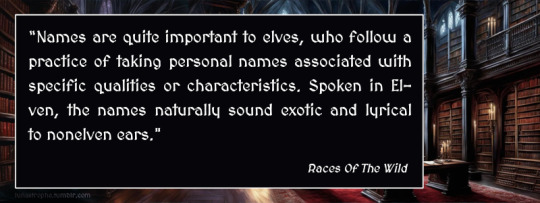
I stumbled across this popular theory that Astarion's name means Little Star - but personally, I prefer to derive his name from DnD version of elven language. I think that the result is much more interesting 🙂
Astarion - it looks somewhat similar to aasterinian (quicksilver, mercury as a metal), with the last syllable changed into a suffix -ion (noble).
So, Astarion's name could be connected to a definition of mercurial character - changeable, cool and willful at one moment, utterly fragile the next. Mercurial can also mean: animated, quick-witted, having the characteristics of eloquence, shrewdness, swiftness, and thievishness. Suits him!
Suffix -ion is commonly used as a term of respect to address the scions of noble elven families who are not entitled to "lord" or "lady" (based on A Treatise on Espruar). It could nicely point to Astarion's social status: noble, but not of the highest rank.
Child name - if you prefer the theory that Astarion's name is his child name (customarily given by elven parents to their children and used until the elf can be considered an adult) - "mercurial" could still fit. I can totally imagine Astarion as a hyperactive, hard-to-control, shrewd kid... prone to mood swings, maybe?
Ancunin - using D&D Elvish as a point of reference, Astarion's last name can be neatly split into an (hand) - cu (in) - nin (ritual).
So, "hand in ritual". In a foreboding sense, it could point to Astarion's role in Cazador's ritual - but it could also suggest, for example, that his elven ancestors were connected to some arcane rituals or religious practices in their community.
#i love this#love learning new things#astarion#astarion ancunin#name meanings#elven#bg3 headcanons#elf lore#dnd elves#dnd lore#bg3 lore#bg3 elven lore#bg3 astarion#bg3#baldurs gate 3#baldur's gate 3#astarion thoughts
819 notes
·
View notes